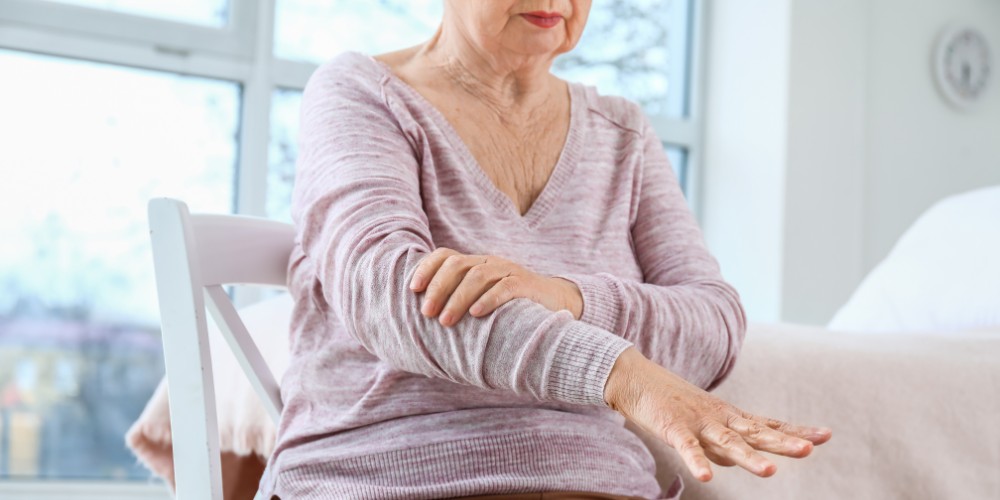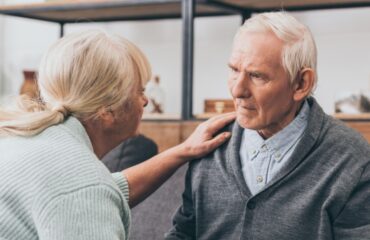Parkinson’s is the fastest growing neurological condition in the world, and unfortunately currently has no cure. Roughly 145,000 people live with a Parkinson’s diagnosis in the UK in 2020. Despite there being no cure, some symptoms of Parkinson’s can be managed. This is where domiciliary care comes in.
Domiciliary care allows the person living with Parkinson’s to live independently in their own home. This is instead of having to go into a care home. This type of care allows you to stay surrounded by your own belongings and improves your quality of life, all while maintaining your social life. Here at A1 care, we specialise in Parkinson’s care. If you want to know how domiciliary care can help someone suffering from Parkinson’s, then keep reading!
What is Parkinson’s?
Parkinson’s is a neurodegenerative disorder. It affects the dopamine-producing neurons in specific areas of the brain, such as the substantia nigra. Parkinson’s slowly develops over the years, with the symptoms being different for everyone.
Some symptoms include:
- A tremor, mainly visible when you’re at rest
- Limb rigidity
- Gait and balance problems
There are more than 40 symptoms of Parkinson’s, but of course it will affect each person differently. Since each person can have a different combination of symptoms, it’s important that you find a carer with specialised Parkinson’s care training.
Symptoms start gradually, often being barely noticeable or only affecting one side of your body. This side will remain worse, even after the symptoms spread to the other side of your body. The most common early symptom is a tremor in the hands but Parkinson’s can also cause stiffness or slow movement. There is also the possibility that in the beginning your face may show little or no expression, with your speech becoming soft or slurring.
Many find that that their arms may not swing when they walk. Unfortunately, symptoms will only worsen as time goes on. Remember, this is just a guide to the most common symptoms of Parkinson’s and in no way should be used as a diagnostic tool.
If you believe that you or a loved one may have Parkinson’s check with your doctor. A1 Care is not able to make any diagnoses. Every hours 2 more people are diagnosed with Parkinson’s. This means it’s very likely that you or a loved one will one day be affected by this illness. However, having a carer will enable you to have the best quality of life possible.
How Domiciliary Care Can Help
As Parkinson’s progresses it is likely that the person affected will need extra support to carry out their daily tasks. Such as personal care, cooking, and cleaning. It has been found that regular exercise can help ease some of the symptoms associated with Parkinson’s, such as muscle stiffness due to mobility issues.
Our carers can help the person affected by Parkinson’s exercise in a supervised environment, so that any accidents are avoided. Another aspect of Parkinson’s is that it can affect things like speech and cognitive abilities, especially as it progresses. However, cognitive stimulation, such as reading and talking, can help alleviate these symptoms slightly. At A1 Care, we are more than willing to accommodate this. Our carers can also help administer any medication taken to alleviate some symptoms. Studies have shown that medicines to increase the levels of dopamine in the brain have been able to help manage the symptoms of Parkinson’s to an extent.
Always remember to check with your doctor to make sure that these medications are suitable and safe for you to use. As Parkinson’s progresses, live-in care may be a more suitable option, as they may need round the clock care. Domiciliary care also allows any family members or friends taking care of the person living with Parkinson’s to take some respite.
Respite Care for Those Caring for a Love One with Parkinson’s
Respite care means that you are able to take a break from your care-giver duties, while knowing that your loved one is still being properly cared for. If you think you might need respite, read our blog post on the 8 signs you need respite care. Domiciliary care has allowed people living with Parkinson’s to live relatively normal lives. Before getting domiciliary care, a person with Parkinson’s would be having a hard time managing their illness as it had progressed into the later stages. They were having trouble feeding themselves, bathing, and even just getting out of bed was becoming a struggle.
They were suffering from muscle soreness and pain from their limbs seizing up throughout the day. Finally, it was decided that the best course of action would be to get a carer. This significantly improved their quality of life, as the carer was able to help them get out of bed, bathe, and keep the house clean.
They also came up with an exercise routine that would stop the muscle pain, and cooked healthy balanced meals to keep the client healthy and hydrated. Without care, the client would still have a poor quality of life, and be unable to do the things that mattered most to them. It’s important to choose a care provider that upholds the UK standards of care. If you think your loved one might be in need of a carer, read our blog post on the 3 signs that a carer is the best option for your loved one.
A1 Care
At A1 care, all of our carers go through an intense training programme so that we are able to deliver the best care possible.
This includes topics which can be applied to Parkinson’s care, such as:
- Medication
- Moving and Handling
- Person Centred Care
- Risk Assessment
Our carers also go through specialised training to meet the needs of people living with Parkinson’s. This ensures that our carers are up to date with the best practices for Parkinson care, and are able to meet any of the needs that your loved one might have, no matter the combination of symptoms they display.
To see a more extensive list of the training our carers undergo, check out our website today.
If you think domiciliary care is the best option for your loved one get in touch with us today to arrange an assessment and see how we can help. A1 Care covers a 20 mile radius of the areas of Bournemouth and Wareham, so if you’re in the area and need a carer we are your #1 choice.
We have been awarded a 10/10 ranking by Home Care, and are ranked No.1 in the BCP area.




